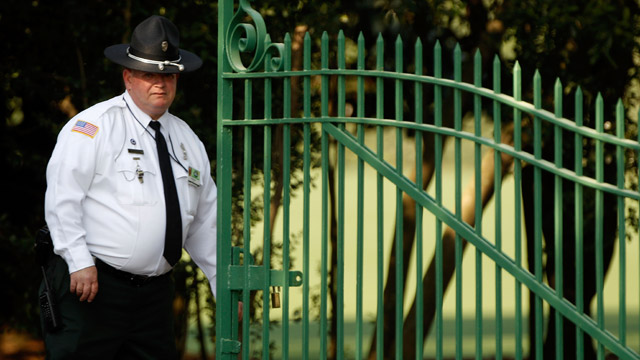NEWS
Ascension of female CEO at IBM revives Augusta membership debate

The appointment of a new chief executive at IBM has revived the debate over Augusta National Golf Club's all-male membership just one week before the Masters.
IBM hired Virginia Rometty as its CEO this year, which could mean a break in recent tradition if Augusta National sticks to its history of never having a woman as one of its roughly 300 members.
The last four CEOs of IBM all belonged to the club. However, a woman has never worn an Augusta National green jacket since it opened in 1933.
"I think they're both in a bind," Martha Burk said Thursday evening from Washington.
It was Burk who led an unsuccessful campaign 10 years ago for Augusta National to admit a female member, demanding that four companies drop their television sponsorship because of the discrimination. Hootie Johnson, club chairman at the time, said Augusta National would not be pressured to take a female member "at the point of a bayonet."
"IBM is in a bigger bind than the club," Burk said. "The club trashed their image years ago. IBM is a corporation. They ought to care about the brand, and they ought to care about what people think. And if they're not careful, they might undermine their new CEO."
Augusta National declined comment, keeping with its policy of not discussing membership.
Billy Payne, who ran the 1996 Olympics in Atlanta, took over as club chairman in 2006. He said that day the home of the Masters "has no specific timetable" for admitting women. The question was raised at the 2007 and 2010 Masters, and both times, he said membership issues were private.
Rometty succeeds Sam Palmissano at IBM, which runs the Masters' website from the bottom floor of the media center. According to a list published by USA Today in 2002, the previous three CEOs also were members -- Louis Gertsner, John Akers and John Open.
Johnson wound up doing away with television sponsorship for two years to keep the Masters' corporate partners out of the fray.
Burk doesn't believe it should be that simple this time.
"What IBM needs to do is draw a line in the sand -- `We're either going to pull our sponsorship and membership and any ancillary activities we support with the tournament, or the club is going to have to honor our CEO the way they have in the past,'" Burk said. "There's no papering over it. They just need to step up and do the right thing.
"They need to not pull that argument that they support the tournament and not the club," she said. "That does not fool anybody, and they could undermine their new CEO."
Burk said she would not be surprised if IBM pressured Rometty to say she doesn't want to be a member.
IBM has not commented.
"Really, I don't think it's her responsibility," Burk said. "It's the board of directors. They need to take action here. They don't need to put that on her. They need to say, `This is wrong. We thought the club was on the verge of making changes several years ago, and we regretfully end our sponsorship to maintain her credibility and the company brand.' "
The debate returns just in time for one of the most anticipated Masters in years. Tiger Woods finally returned to winning last week at Bay Hill and is considered one of the favorites, along with U.S. Open champion Rory McIlroy. Eight of the top 20 players in the world ranking have won heading into the first major of the year, a list that includes world No. 1 Luke Donald and Phil Mickelson.
Now comes a sensitive issue that dogged the tournament a decade ago, and might not go away easily.
Augusta National does not ban women. They can play the golf course, but no woman has worn a green jacket, a status symbol in business and golf.
Rometty is said to play golf sparingly. Her greater passion is scuba diving.
The new CEO has been named to Fortune magazine's "50 Most Powerful Women in Business" for the last seven years, and was at No. 7 a year ago. She started with IBM in 1981.
"We have a face, we have a resume, we have a title and we have a credible reason to do it that doesn't involve Martha Burk," she said.
Burk said she is no longer chair of the National Council of Women's Organizations. She had planned to step down until the first flap with the Masters began in the summer of 2002. Now, she said she runs the Corporate Accountability Project for the council, a project born from her battle with Augusta National.
